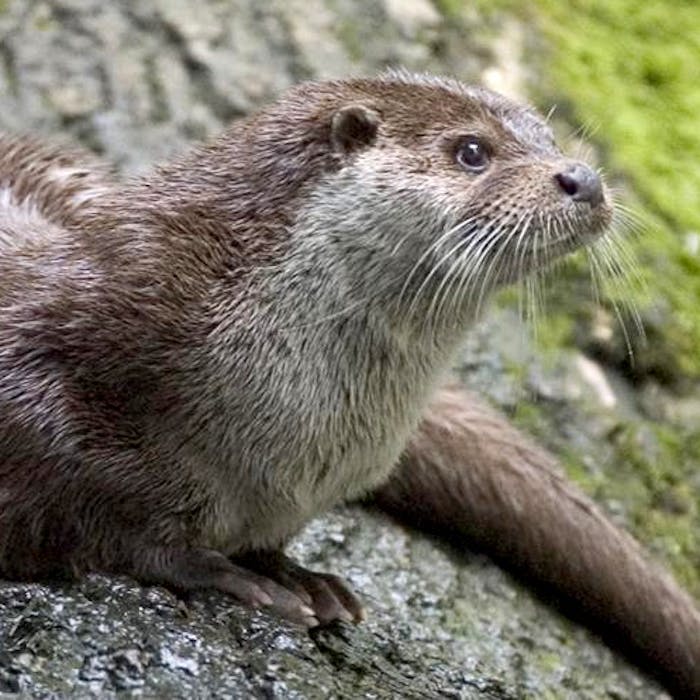
The elusive otter - now not as uncommon as you might think
The wild otter species found in Britain is now making a remarkable comeback, after suffering catastrophic declines in the 1950s and 1960s due to the combined effects of water pollution, habitat destruction and persecution. Otters are often elusive, with large ranges and largely nocturnal behaviour, making spotting them a rare and delightful experience.
But if invisible, there's probably now an otter or two somewhere in a river near you - a remarkable success story for a species near extinction just decades ago.
The Common or European Otter is a large member of the weasel family that can reach nearly a metre in length and weigh up to 12 kilograms. It is one of Britain's top predatory animals, hunting in wetlands, rivers and along the coast, as it looks for fish, waterbirds, amphibians and crustaceans to eat.
The otter has grey-brown fur, a broad snout, and a pale chest and throat. Otters can be distinguished from similar-looking mink by their much larger size and broader face.
Otters have their cubs in underground burrows, known as 'holts'. Excellent and lithe swimmers, the young are in the water by 10 weeks of age. The species is well-suited to a life on the water, with webbed feet, dense fur to keep them warm, and an ability to close their ears and nose when underwater. They require clean rivers however, with an abundant source of food and plenty of vegetation to hide their secluded holts.
The decimated UK otter populations recovered throughout the 1990s and otters can now be found in every county - appearing even in some unexpected places such as large urban centres. Sightings have been made in London, Birmingham, Manchester, Sheffield and Edinburgh, and in smaller cities such as Andover, Inverness and Exeter.
Legal protection, cleaner river water, and conservation efforts both for otters and for the fish they catch, have enabled this renaissance.
Further reading
Links to external websites are not maintained by Bite Sized Britain. They are provided to give users access to additional information. Bite Sized Britain is not responsible for the content of these external websites.
